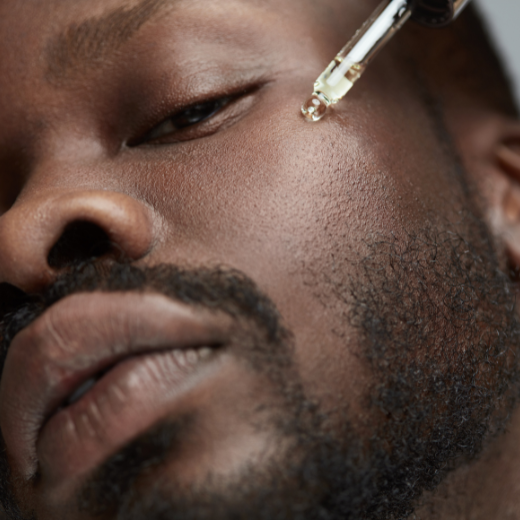Frequently Asked Questions About Men's Skin Care
Posted by Nikki Wisher on Oct 11th 2022
We all know the stereotype – that only women care about their appearance. Simply put, that stereotype is busted.
Yes, as a whole, women do spend more money than men on cosmetic or aesthetic purchases, so most skin care informational content is geared toward women. At Skin Elite, though, we believe that people of every gender deserve to have healthy skin that makes them feel comfortable and confident. That’s why we’re focusing this blog on men’s skin care and answering the gents’ top questions about their skin.
Does Facial Hair Protect My Skin from Sun Damage?
Sun protection might be the most widely spread piece of skin care advice, and it should be, because sun damage truly can wreak havoc on your skin’s health and appearance. What about the skin under your facial hair, though? Does your beard take care of the sun protection?
To some degree, yes, facial hair can protect your skin. The best-known study of this was conducted in 2012. That study found that facial hair can have a UPF ranging from 2 to 21, depending on its thickness. If you’re not familiar with UPF, it’s the measure that is used to categorize how well clothing shields you from the sun. It’s measured in a similar way to SPF.
This means that for men with very dense beards, you might be getting the equivalent of an SPF 20 sunscreen on the area your facial hair covers. For beards on the lower end of the scale, though, like beards that are patchy or thin, the sun protection is negligible.
How Do I Apply Sunscreen if I Have a Beard?
If your beard isn’t thick enough to provide significant sun protection, you’ll want to apply sunscreen to this area just like you do for the rest of your face. That can be tricky, of course, with all that hair in the way.
The best strategy is to put the sunscreen on your fingertips and then massage it into the skin under your beard. Make sure you use a sheer sunscreen that is specially formulated not to leave a white caste so your beard can still look its best.
How Can I Prevent Skin Irritation from Shaving My Facial Hair?
Razor bumps and other types of skin irritation are highly common in men who shave their facial hair, even if you’re just cleaning up the edges. There are some rules you can follow to keep that irritation to a minimum.
First, exfoliate your skin before you shave. You don’t want to exfoliate more than twice per week, so if you shave daily, just start adding exfoliation to your routine before you shave twice per week.
Another helpful tip is to moisturize your skin before you shave. This helps both your skin and your hair to be more pliable so the razor moves more smoothly and creates less friction on your skin. Using beard oil daily can help with this too by keeping your beard continually hydrated.
Multi-blade razors can leave you more vulnerable to skin irritation too, as can pulling your skin taut when you shave. If you’re noticing irritation, switch to single- or double-blade razors.
Should Men Follow the Same Anti-Aging Regimen as Women?
When it comes to aging, men’s skin and women’s skin differ. Men naturally have thicker skin with more collagen, so men usually don’t start to see signs of aging until years after their female peers. Still, it’s always a good idea to start sooner rather than later so you’re taking a preventative approach.
While there’s no difference between anti-aging products for men and women, it’s important to note that every person’s skin is unique. Make sure you choose products that are suited for your skin type rather than just bumming your female partner’s products, because if she has dry skin and you have oily skin, you won’t love the results.
Why Do I Have Oilier Skin Than My Female Partner/Friends?
While every person’s skin varies, men typically have oilier skin than women. Men have more active sebaceous glands (the glands that produce skin oil) and produce around twice as much oil overall as women’s skin does.
That’s not a bad thing, but it’s important to choose skin care products that are designed for oily skin, whether you’re looking for moisturizers, serums, cleansers, or other items. Products for oily skin are formulated to help balance your natural oil production. If your oily skin is leading to acne issues, choose acnecontrol products for your skin care.
Customizing a Skin Care Routine for Masculine Skin
While skin care is stereotyped as being a concern for women alone, men all over the world are taking great care of their skin and reaping the rewards. The Q&A above can shed light on how you can enjoy healthier, more youthful skin. When you’re ready to start building or enhancing your skin care regimen, check out our expansive selection of products including products for your unique skin needs.

